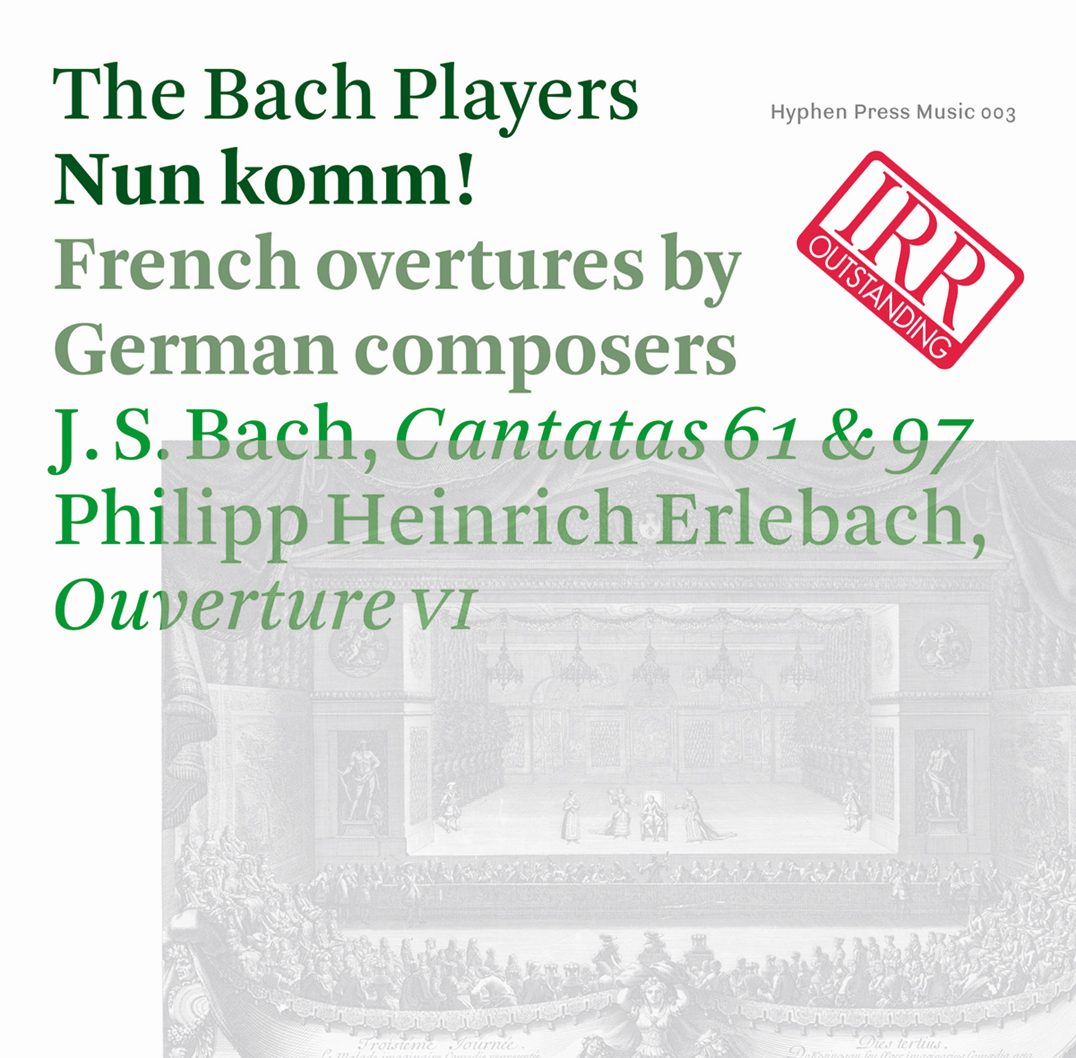Back to Reviews
‘Nun komm!’ reviewed in Early Music

David Black reviewed our CD ‘Nun komm!’ for Early Music.
‘Nun komm! French overtures by German composers’ is a recent release from The Bach Players, a London group previously unknown to me. The line-up shows many familiar names, as so often with early music ensembles. Again there are single voices and single strings to a part. The eclectic programme features the two cantatas BWV 61 and 97, an overture by Erlebach, and three settings of the melody on which the chorale of BWV 97 is based. Both Bach and Erlebach played an important part in the musical history of Muhlhausen, and both taught the young student Johann Caspar Vogler. The well-known ‘Nun komm, der Heiden Heiland’ and the lesser-known ‘In allen meinen Taten’ are linked by their shared combination of French overture and chorale setting, although they are by no means the only representatives of overtures in Bach’s cantatas. The performance of ‘Nun komm’ follows the current understanding of Bach’s practice in Weimar in omitting 16’ string support, but the group adopts Cammerton instead of the higher Chorton that seems to have been the standard in the ducal chapel. ‘In allen meinen Taten’ is rarely recorded outside the complete cycles, and I must confess to have paid it little attention previously; with a few notable exceptions, Bach’s settings of a hymn per omnes versus do not maintain a consistently high level of inspiration. Nevertheless, the recording makes the most of the cantata, which is cast on an unusually large scale. Nicolette Moonen skilfully handles the difficult violin solo in the tenor aria ‘Ich traue seiner Gnaden’, and the duet ‘Hat er es denn beschlossen’ receives a delightful performance from soprano Rachel Elliott and bass Peter Harvey. The opening and closing movements are based on a chorale to the famous tune ‘O Innsbruck, ich muß dich lassen’, and the cantata is bookended on the CD with three earlier settings of the tune by Isaac, Hollander and Lütkeman. Erlebach is represented by the last of the VI Ouvertures begleitet mit Airs nach französischer Art, a collection of instrumental suites published in 1693. The musical language is clearly that of the generation before Bach, but the choice makes sense in the context of the other works and the presence of a baroque guitar in the continuo only adds to the allure of this most interesting recording.
Early Music, vol. 39, no. 3, 2011